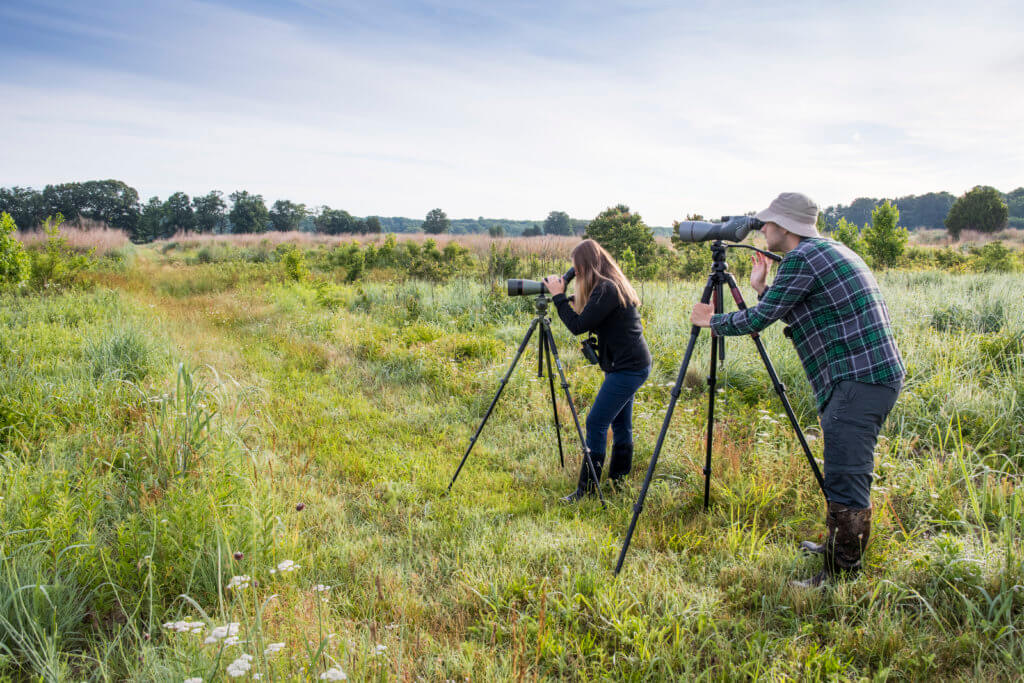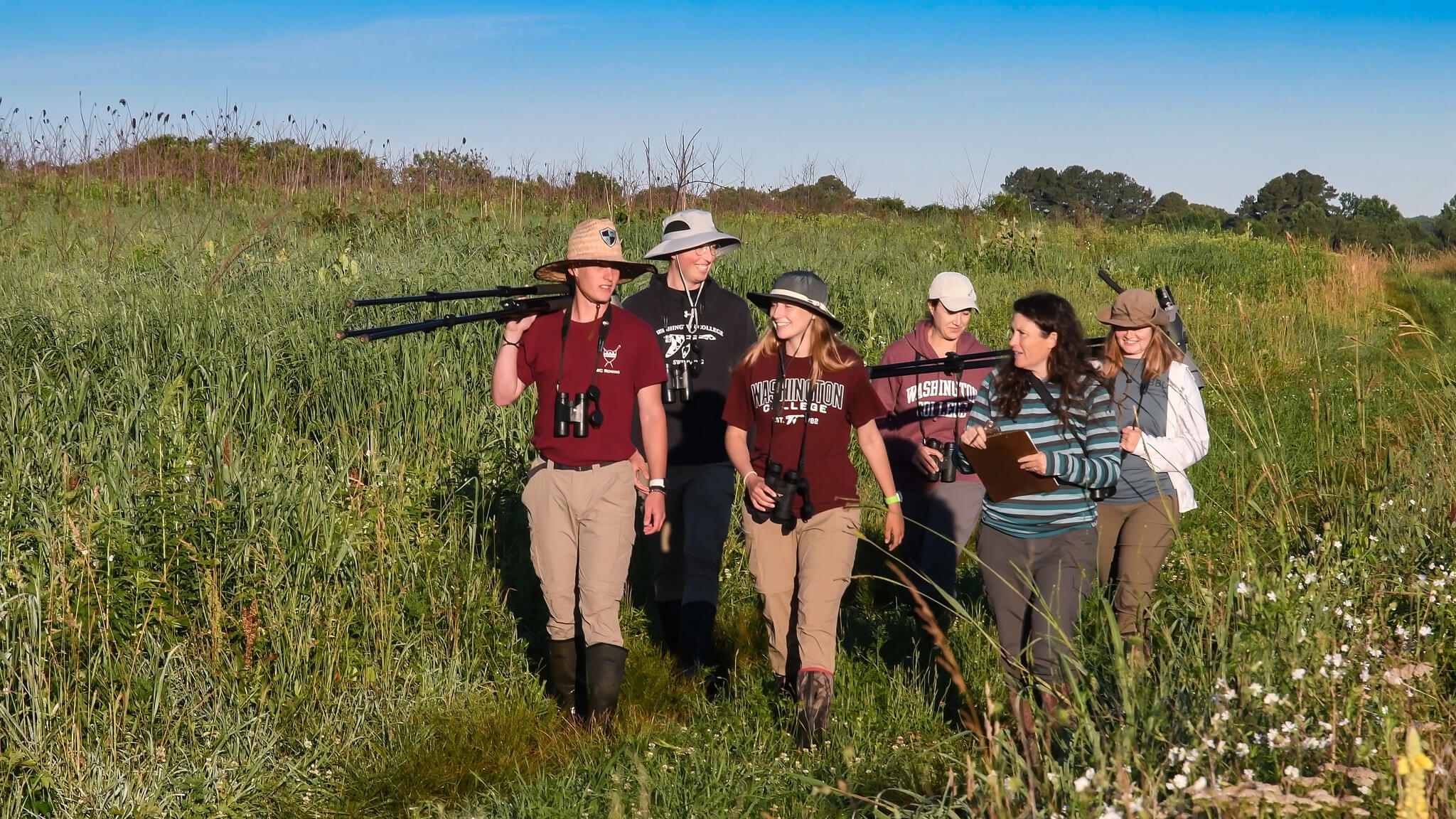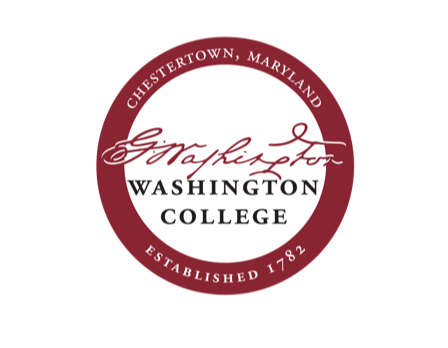In 2017, Sarah Polo chose Washington College to explore the world of marine conservation. It didn’t take long until her focus shifted to protecting the environment as a whole — however, the study of birds made her interest take flight in ways she never imagined possible.
Polo thanks the experiential nature of her Environmental Studies major for opening her eyes to where her attention needed to be all along — a trip to Eastern Neck Island Wildlife Refuge with her ornithology class was the ultimate guiding light.
This new insight drove her to intern at Washington College’s Center for Environment and Society (CES) where she studied field sparrow nests in the grasslands of the college’s River and Field Campus. She also dabbled with carbon accounting, backtracking four years of data to calculate the school’s carbon footprint and comparing it to similar institutions. In her senior year, she opted to study declining seabird populations for her Senior Capstone Experience.
Today, a graduate and a professional, Polo remains with the CES as a data entry specialist. She encourages all aspiring world-changers to follow in her footsteps and gain the experiences needed to pinpoint their passions. “This is a beautiful place to go to school,” she enthuses. “The Chesapeake Bay is the best classroom you can find.”
The CES is a golden ticket into the living laboratories Polo speaks of, many of which surround Washington College’s expansive campus. Within them, students are primed to join a new generation of creative, solution-oriented leaders ready to tackle the most pressing environmental problems of the 21st century. Their training comprises innovative curricula, real-world experiences, training in cutting-edge technologies, and the nurturing of fresh minds.

The CES is a golden ticket into the many living laboratories surrounding Washington College’s expansive campus. Source: Washington College
For example, work conducted at the River and Field campus — the most significant conservation easement in the state of Maryland — are backed by a liberal arts approach to help future leaders understand the complexity of emerging issues from scientific and human perspectives. The process includes exploring the great outdoors to study everything from soil chemistry to bird migration; propose global-scale solutions, and truly become one with nature. Anything is possible on grounds decision-makers believe in.
In 2020, Washington College won a US$1 million grant from the Department of Commerce’s Maryland E-Nnovation Initiative Fund (MEIF) to establish an endowed directorship of its River and Field Campus. The award was matched by US$1 million from Harry Sears, the landowner who has provided the 5,200-acre property for the college’s oversight.
In 2021, the college was awarded US$1.25 million in matching funds through the Maryland E-Nnovation Initiative (MIE), matched by private donors, for a US$2.5 million endowment supporting a Chair for the Natural & Cultural Resource Initiatives under the college’s CES.
The professorship will support “Past is Present” — an initiative focused on environmental archaeology, cultural resource management, and bridging the gap between heritage and natural resources.
Later that year, Washington College was recognised by the US Environmental Protection Agency and invited to join its Green Power Partnership for its enduring commitment to purchase solar energy.
“The solar purchase agreement is an important step forward for Washington College, as one part of an overall sustainability plan,” said John Seidel, CES director. “Reducing our global carbon footprint has never been more critical. We are grateful for this recognition from EPA and pledge to continue this effort — our students and community expect this of us, and it’s simply the right thing to do.”

At Washington College, every budding environmentalist is guaranteed an experiential education of a lifetime. Source: Washington College
The college further supports the health of our planet by reducing the use of bottled water through refill stations around campus. It was designated as Maryland’s first Bee Campus USA for its efforts to create a sustainable habitat for pollinators. It gives students free access to emission-free bicycles during the school year. It maintains a lush Campus Garden, encourages smart energy consumption, reduces household organic waste through composting, and advocates for ecological justice, amongst many other world-changing initiatives.
Every student gets to choose the role they play in championing these goals — much like the graduates before them.
Graduate Samina Soin-Voshell spent a portion of her time at Washington College researching how to make seawalls more conducive for aquatic life. She also studied marine biofouling on different concrete substrates. Larisa Prezioso’s senior thesis focused on ecotoxicology, exploring how additives used to synthesise plastics create environmentally poisonous chemicals.
Many are proudly following in their footsteps. Environmental Science major, Arianne Browning, is currently investigating the first-related artefacts excavated at the 2021 WC Archaeological Field School. She plans to present a paper on her findings at the Middle Atlantic Archaeological Conference in Spring 2022 under a Cater Society grant.
Lanning Tyrrel joined the Department of Environmental Science and Studies as a fire-fighting teen through its cadet programme. Recently, the Environmental Science student spent 40 summer hours a week cutting trees and burning the piles to lessen the threat of the wildfire and make controlling fires more manageable.
Interested in joining them? If you’re ready to begin solving regional and global environmental issues with Washington College, click here.











